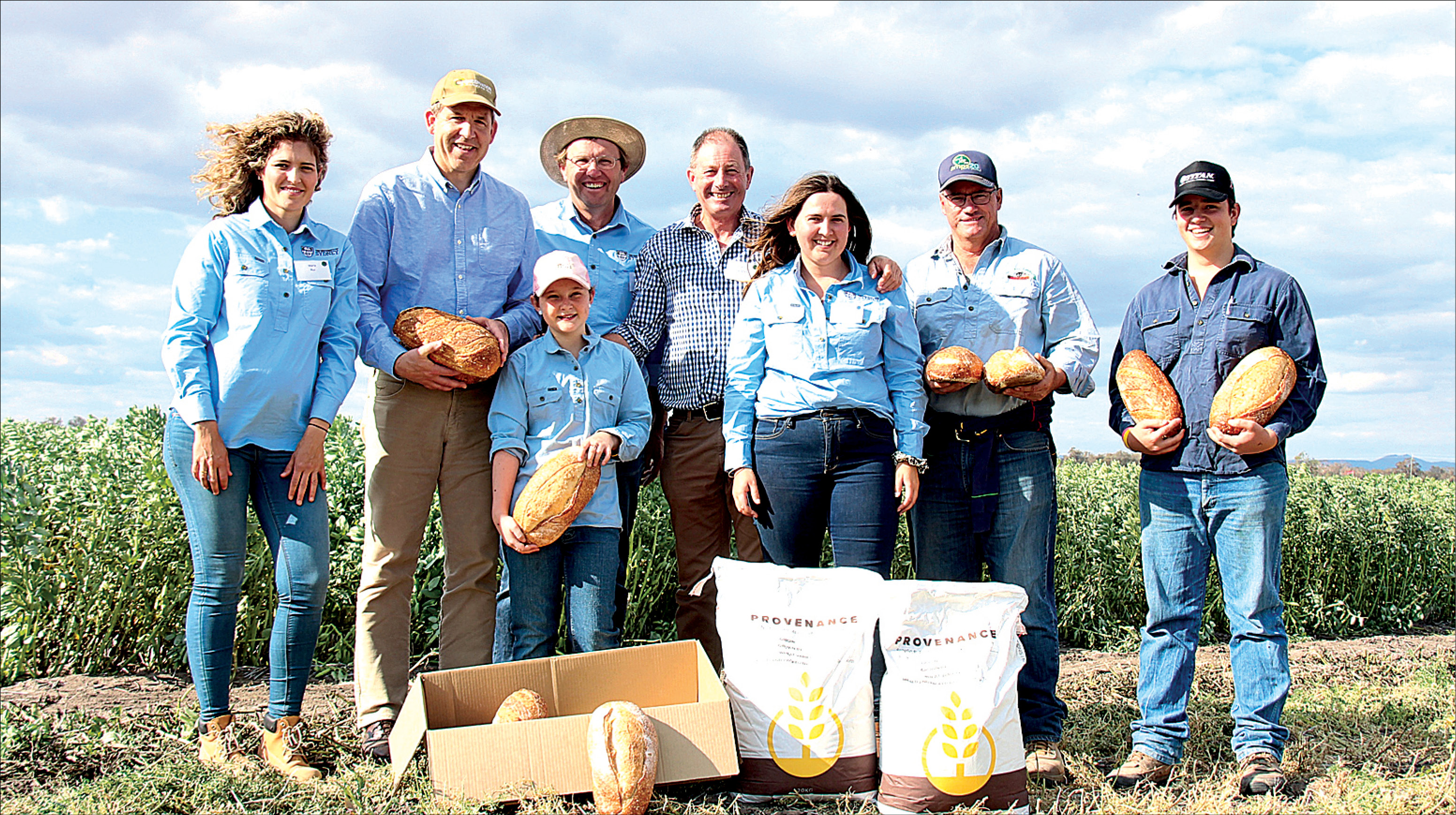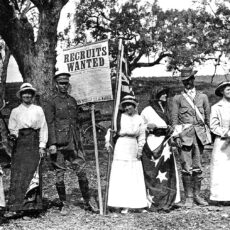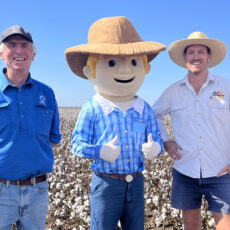The University of Sydney Plant Breeding Institute field day, held in conjunction with the Sydney Institute of Agriculture attracted a record crowd of more than 350 people on Wednesday.
“It’s been a great day, it’s the most people we’ve ever had,” said Associate Professor Guy Roth, Director of Northern Agriculture at the Plant Breeding Institute.
“I think it’s really exciting – they’ve all come here to see new innovations in research.
“There’s research ranging from plant breeding which is our traditional base, digital agriculture, weeds
research, and then we’ve really put the focus on the food and beverage provenance and single origin work,” said Dr Roth.
The theme of this year’s University of Sydney Plant Breeding Institute field day was ‘Foods for thought’.
“What we really wanted to talk about was food at the end of the day we’re all growing, we’re all producing food and beverages and we wanted to put the focus on that.”
Dr Roth believed the strong crowd was a reflection of our region’s appetite for knowledge.
“My experience is that north-west New South Wales farmers, agricultural advisers and agronomists have always been very interested in how to do things better.
“They’re always very interested in collaborating and learning from each other and helping each other, and so they come to days like today to do that – to learn, see, collaborate and share.”
The event featured talks and field demonstrations from a range of people working in agriculture including from the University of Sydney, Australian Grain Technologies and the Grains Research and Development Corporation.
Dr John Troughton and the XAG team returned to Narrabri with their impressive drones, following a successful demonstration day at the institute in July.
“We had a lot of interest and we wanted to come back,” said Dr Troughton.
“Today’s great for communications with the farming community because we get feedback, we get to learn what farmers are looking for.
“We’ve had lots of questions including ‘can they kill pigs?’ and we do have one with pellets.
“We’ll be calling in to see people in the region on the way home too,” said Dr Troughton.
The future of farming was in the spotlight with displays on the automated detection of ryegrass in wheat, soil moisture sensing, robotic farming and site specific nitrogen application.
Hot topics of conversation included heat and drought tolerant wheat and chickpeas, hybrid wheat and alternative crops for the northern region.
However, the main attraction was the food and beverages on offer for taste testing, some of which were produced from the crops that surrounded the field day such as sorghum, triticale and native grains.
Founder of Provenance Flour and Malt John Campbell was a guest speaker and he captivated the audience as he spoke about his work with Brasserie Bread – a company run by well-respected baker Michael Klausen, a pioneer in the artisan bread movement in Australia and formerly of Sydney’s Bayswater Brasserie.
Mr Campbell facilitates the direct relationship between farmers, their community, bakers, brewers and customers.
He works with farmers to select varieties of wheat sown to produce the perfect flavour and baking characteristics.
“We are single origin, single varietal and we’ve taken the supply chain and we’ve bent it into a circle which means that we identify farmers on three criteria.
“One, what they do is good for the environment.
“Two, that they support their local community.
“And three, they’ve got the right philosophy and capability to manage the integrity of the growing,” said Mr Campbell.
“We’ve taken a view of one variety from one farm, and that’s all about the consistency and continuity of performance, into the artisan bakers, craft brewers and distillers.
“Because the big guys, they just blend it all up and come out with a homogenous white powder.”
Mr Campbell can put a loaf of bread and a glass of beer on the table and tell you which farm it is from.
“It’s important because not only is it about performance but it also gives recognition to the farmer and so the consumer can see what a good job the farmer’s doing in terms of their environment, in terms of their community.
“It links those city communities with country communities through food and beverage.”
Mr Campbell works with farmers in the north west from North Star to Tamworth and ensures consumers have the ‘paddock to plate’ experience by sharing their stories.
He said that attending and speaking at the field day was a ‘fantastic opportunity’.
“This is all about where the future is going and what’s happening and the future is key.
“We’ve got to worry about not only our kids but our kids’ kids and what the future is going to have for them.
“I do think the future for food and fibre is getting brighter and brighter.
“I really love linking up farmers and bakers and brewers and their consumers, and being able to have a really positive impact on local communities and on local environments,” said Mr Campbell.
Mr Campbell has also joined forces with 4 Pines Brewery Company who were at the field day too and served up some frothy sundowners, specially crafted beer brewed with triticale grown and developed in Narrabri.
“So 4 Pines and Provenance Flour the Malts collaborated on a beer for the day which is made with 25 per cent locally grown triticale, malted triticale,” said 4 Pines head brewer Andrew Tweddell.
“I mainly look after the product development, in terms of piloting new recipes with all sorts of cool
ingredients and triticale was something that I hadn’t previously brewed with, and was keen to give a try.
“Traditionally it’s been more a supply chain sort of thing but through working with John Campbell, it’s turned into more a supply circle rather than a supply chain, where we try to make a beer that we’re proud of and hopefully one that the farmers are proud of as well,” he said.
To order photos from this page click here




